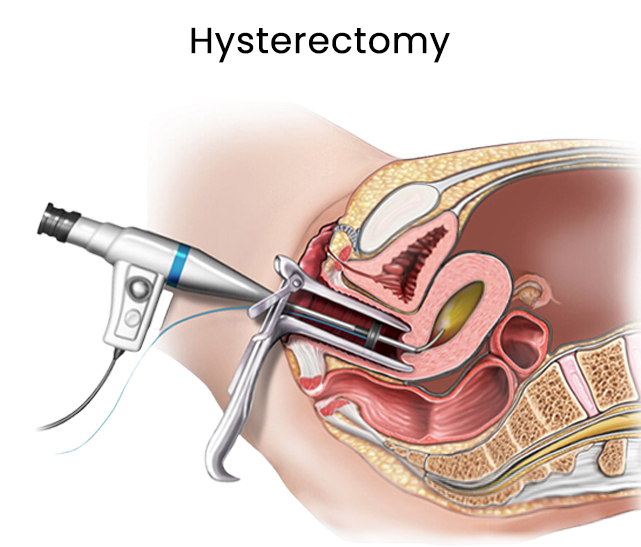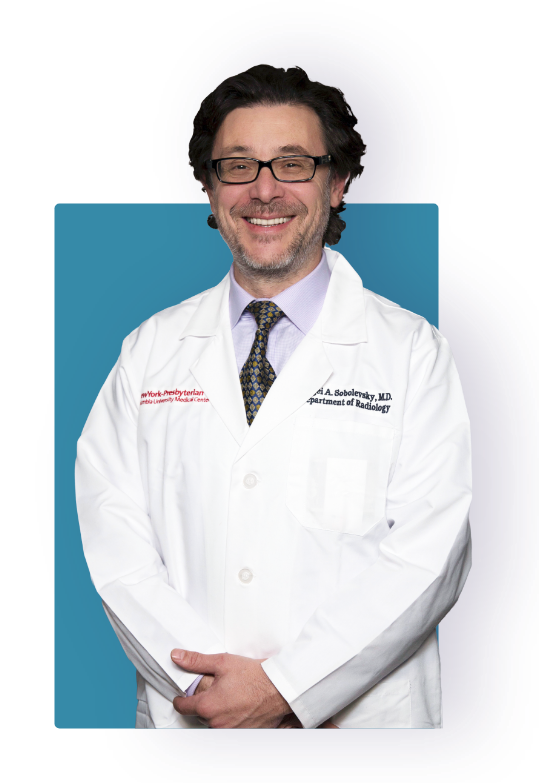Fibroid removal surgery is still surgery, with all the risks such a procedure entails. Before you decide to get any type of surgery, whether it’s a hysterectomy or uterine fibroids surgery, talk to a specialist who know how to get rid of fibroids without surgery. Dr. Sergei Sobolevsky, who heads the Downtown Vein & Vascular Center in Brooklyn, offers alternatives to fibroid surgery. Call today to schedule a consultation to discover what your options are.
Do I Need Uterine Fibroids Surgery?
Many women with uterine fibroids experience uncomfortable or painful symptoms. As long as the fibroids continue to grow in your uterus, these symptoms will most likely persist or get worse. Fibroids removal leads to substantial fibroid symptom relief.
If you don’t experience any symptoms, you do not need to treat your fibroids. A consultation with a top fibroids specialist at the Downtown Vein & Vascular Center in Brooklyn provides a better picture of your uterine health. Should you need treatment, Dr. Sergei Sobolevsky and his team know how to get rid of fibroids safely and effectively.
What Are Symptoms that Require Uterine Fibroid Removal?
The most common unwelcome symptom of fibroids is fibroids pain. While fibroids grow, they apply pressure to your uterus and neighboring organs. This pressure often manifests in intense pelvic pain. Added pressure to the bladder also leads to frequent urination, while stress to your rectum causes constipation.
Your NYC doctor explains the various fibroid removal options.
Fibroid specialists recommend the best path of treatment for you, paying particular attention to your age, desire to get pregnant, anatomy, and severity of your symptoms, which may include:
- Pain during sexual activity due to pelvic pain
- Fibroid weight gain as the fibroids grow larger
- Enlarged uterus when your uterus expands to adapt to the swelling fibroids and leads to a shape and size that mimics the appearance of pregnancy
- Changes to your menstrual cycle, a common symptom of fibroids
★ ★ ★ ★ ★
Skilled and Compassionate
Dr. Sobolevsky is both skilled and compassionate. He provided excellent care during my vein treatment and the results were fantastic. I would highly recommend him to anyone seeking vein treatment.
What Are the Different Types of Fibroid Surgery?
Myomectomy and hysterectomy are surgical options to treat symptoms associated with fibroids. Myomectomy surgically removes only the fibroids, whereas a hysterectomy cuts out your entire uterus, including the fibroids. A surgical treatment depends on the size, shape or number of fibroids.
The types of fibroid surgery include:
- Open abdominal myomectomy. During this procedure, a doctor makes an incision in your abdomen, through which the targeted fibroids are surgically cut out. Open abdominal myomectomies are used when numerous fibroids need to be removed or the fibroids are large. Recovery from abdominal myomectomy can take four to six weeks.
- Laparoscopic myomectomy. During laparoscopic myomectomies, a doctor makes a series of small incisions in your abdomen. With the help of special instruments, your fibroids are removed. Laparoscopic myomectomies are only possible if your fibroids are of a certain size and optimally located. Recovery lasts two to four weeks.
- Hysteroscopic myomectomy. Hysteroscopic myomectomy doesn’t require abdominal incisions. Instead, a doctor performs the surgery through your vagina. It generally involves less recovery time than the other myomectomies.
- A hysterectomy is surgery to remove your entire uterus. Sometimes, neighboring reproductive organs, such as the cervix, ovaries or fallopian tubes, are also removed during a hysterectomy. You need up to eight weeks to recover from a hysterectomy.
- Robotic-assisted hysterectomy or myomectomy. This technology allows a doctor to perform surgery with greater precision. But in either case, it’s still a major surgery.

Myomectomy and hysterectomy carry similar general risk as other types of abdominal surgery. Because a hysterectomy removes your uterus completely, it results in infertility. Before you undergo one of these surgeries, make sure you consider a uterine fibroid embolization, a non-surgical treatment to lessen or eliminate the symptoms caused by your fibroids.
What Are Alternatives to Fibroid Surgery?
Alternatives to fibroid surgery include both minimally invasive and non-invasive medical treatment options. Non-surgical uterine fibroid treatment options are safe and effective.
If you want to avoid fibroid removal surgery, consider:
- Uterine fibroid embolization (UFE). Uterine fibroid embolization — or uterine artery embolization — is a procedure in which your NYC doctor injects embolic agents into blood vessels feeding your uterus through a catheter. These agents limit blood flow to your fibroids, causing them to shrink. The benefits of UFE include that it’s minimally invasive, doesn’t require general anesthesia and takes only a few days to two weeks of recovery.
- Birth control helps regulate your menstrual cycle and decrease symptoms, such as heavy periods. Over-the-counter pain medication also soothes severe menstrual cramps caused by fibroids.
The benefits of a uterine fibroid embolization as a non-surgical fibroid treatment include lower risks and shorter recovery times compared to those of surgery. Non-surgical fibroid treatments keep your uterus intact, preserving the possibility of future pregnancies. Contact the Downtown Vein & Vascular Center to learn more about uterine fibroids removal and alternatives to fibroid removal surgery. The serves all of Brooklyn and greater New York City.

I am Dr. Sergei Sobolevsky, a leading specialist in endovascular medicine. Having performed over 25,000 procedures throughout my career, I bring decades of experience in vascular and interventional radiology to my practice. I obtained my Doctor of Medicine (MD) degree from the University of Colorado School of Medicine in 1997 and completed my specialty clinical training in vascular and interventional radiology at Harvard University.
My dedication to excellence in patient care has been recognized through accolades such as being named a Castle Connolly Top Doctor and inclusion in the Top Doctors New York Metro Area lists for 2020, 2021, 2022, and 2023. With licenses in multiple states, I have also shared my expertise through presentations at various institutions in the US and abroad.
More About Dr. SobolevskyDowntown Vein Treatment Center
480 Court Street, Ste 101
Brooklyn, NY 11231
(718) 787-5559


